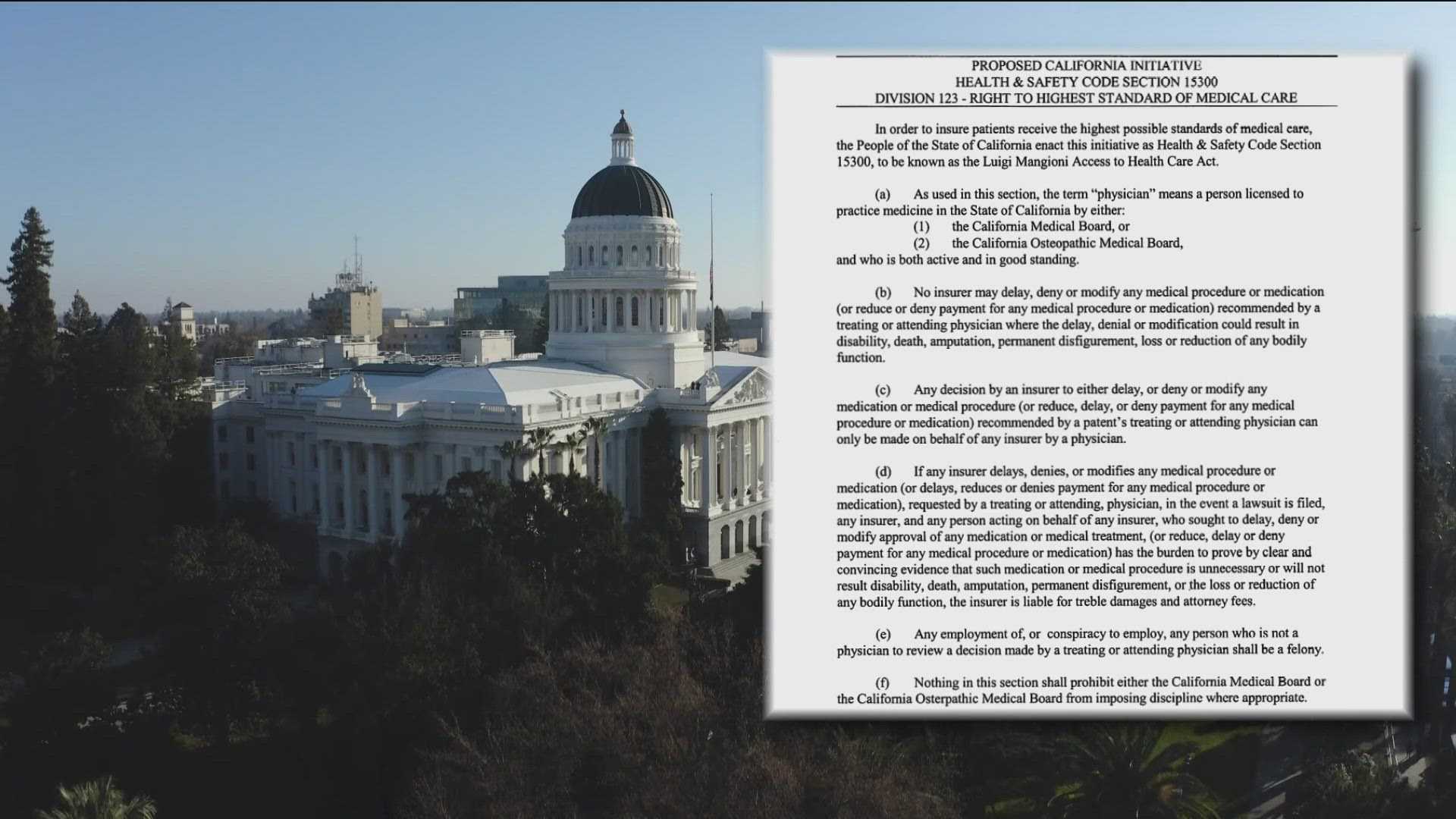Health
Controversial Healthcare Initiative Links Name to Accused Murderer

San Diego, California — A new healthcare initiative in California is stirring controversy by bearing the name of accused murderer Luigi Mangione. The “Luigi Mangione Access to Health Care Act” is designed to prevent insurance companies from denying or delaying critical medical treatments recommended by doctors when serious health consequences could result.
The initiative’s creator, Ezra Eisner, openly admitted to naming the measure after Mangione to elevate its visibility. “For a very simple reason: it is getting the attention it needs, because sometimes things require publicity,” Eisner explained to CBS 8.
Mangione, an Ivy League graduate, is currently facing murder charges in both New York and federal courts for his alleged involvement in a Manhattan killing last December. Evidence collected from the crime scene included bullet casings inscribed with the phrases “delay” and “deny,” which appear to reference the book “Delay, Deny, Defend: Why Insurance Companies Don’t Pay Claims and What You Can Do About It.”
Despite the violent nature of Mangione’s alleged crime, Eisner maintains that his advocacy for the healthcare measure should not be conflated with Mangione’s actions. “I agree with what he was arguing, but I don’t support his method. What I am doing is the right way to do it,” said Eisner.
The proposed legislation would make it illegal for insurers to “delay, deny, or modify any medical procedure or medication” that a doctor recommends when significant health risks, such as disability, death, or permanent disfigurement are present. The aim is to safeguard patients from potential insurance company malpractices that jeopardize their health.
The California Attorney General’s Office is currently reviewing the initiative. A public comment period will remain open until April 25, at which point the office will develop an official title for the measure.
To qualify for the November 2026 ballot, proponents of the initiative must gather more than 546,000 valid signatures from registered California voters.












